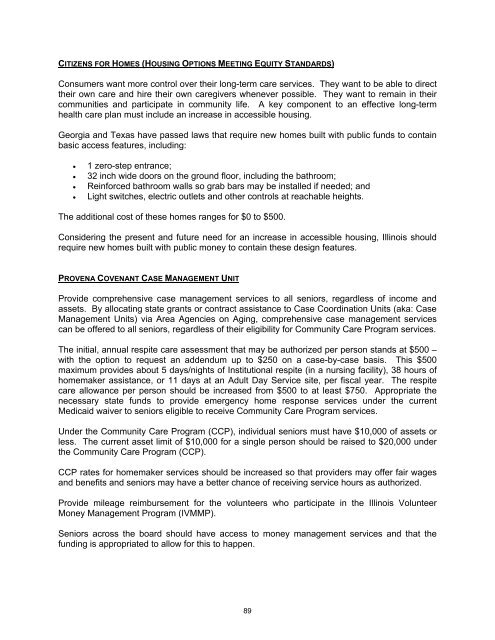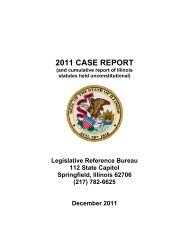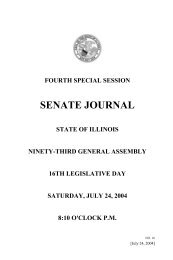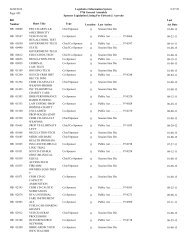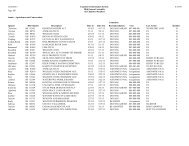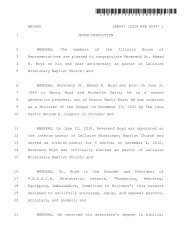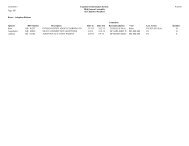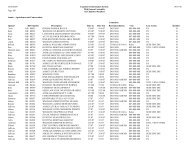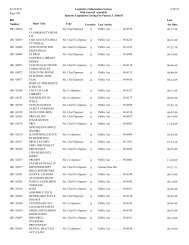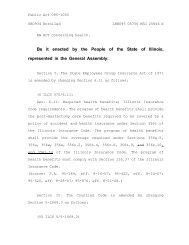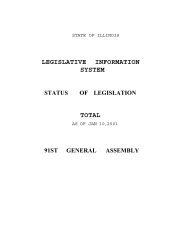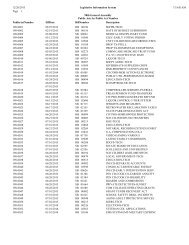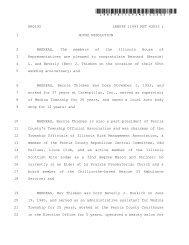Long-Term Care - Illinois General Assembly
Long-Term Care - Illinois General Assembly
Long-Term Care - Illinois General Assembly
Create successful ePaper yourself
Turn your PDF publications into a flip-book with our unique Google optimized e-Paper software.
CITIZENS FOR HOMES (HOUSING OPTIONS MEETING EQUITY STANDARDS)<br />
Consumers want more control over their long-term care services. They want to be able to direct<br />
their own care and hire their own caregivers whenever possible. They want to remain in their<br />
communities and participate in community life. A key component to an effective long-term<br />
health care plan must include an increase in accessible housing.<br />
Georgia and Texas have passed laws that require new homes built with public funds to contain<br />
basic access features, including:<br />
• 1 zero-step entrance;<br />
• 32 inch wide doors on the ground floor, including the bathroom;<br />
• Reinforced bathroom walls so grab bars may be installed if needed; and<br />
• Light switches, electric outlets and other controls at reachable heights.<br />
The additional cost of these homes ranges for $0 to $500.<br />
Considering the present and future need for an increase in accessible housing, <strong>Illinois</strong> should<br />
require new homes built with public money to contain these design features.<br />
PROVENA COVENANT CASE MANAGEMENT UNIT<br />
Provide comprehensive case management services to all seniors, regardless of income and<br />
assets. By allocating state grants or contract assistance to Case Coordination Units (aka: Case<br />
Management Units) via Area Agencies on Aging, comprehensive case management services<br />
can be offered to all seniors, regardless of their eligibility for Community <strong>Care</strong> Program services.<br />
The initial, annual respite care assessment that may be authorized per person stands at $500 –<br />
with the option to request an addendum up to $250 on a case-by-case basis. This $500<br />
maximum provides about 5 days/nights of Institutional respite (in a nursing facility), 38 hours of<br />
homemaker assistance, or 11 days at an Adult Day Service site, per fiscal year. The respite<br />
care allowance per person should be increased from $500 to at least $750. Appropriate the<br />
necessary state funds to provide emergency home response services under the current<br />
Medicaid waiver to seniors eligible to receive Community <strong>Care</strong> Program services.<br />
Under the Community <strong>Care</strong> Program (CCP), individual seniors must have $10,000 of assets or<br />
less. The current asset limit of $10,000 for a single person should be raised to $20,000 under<br />
the Community <strong>Care</strong> Program (CCP).<br />
CCP rates for homemaker services should be increased so that providers may offer fair wages<br />
and benefits and seniors may have a better chance of receiving service hours as authorized.<br />
Provide mileage reimbursement for the volunteers who participate in the <strong>Illinois</strong> Volunteer<br />
Money Management Program (IVMMP).<br />
Seniors across the board should have access to money management services and that the<br />
funding is appropriated to allow for this to happen.<br />
89


